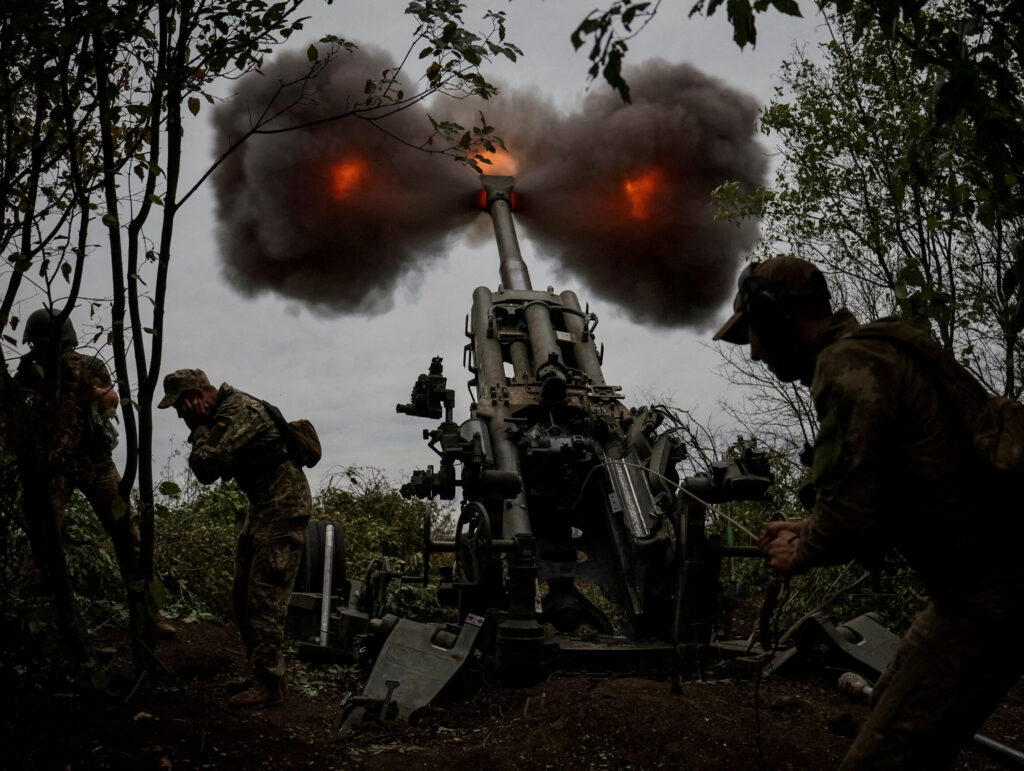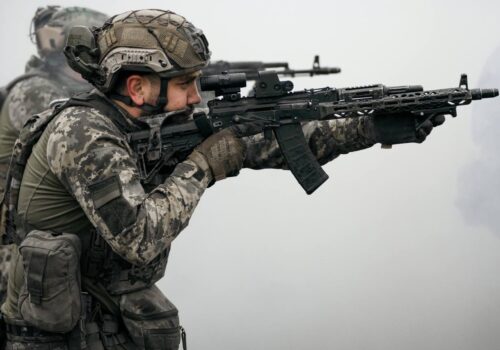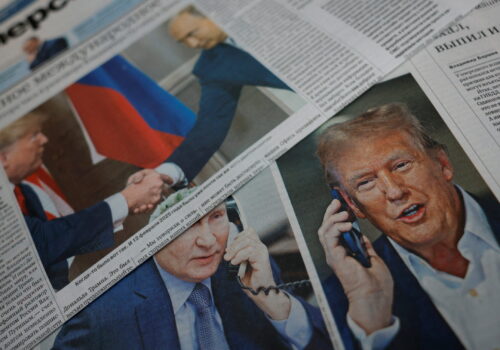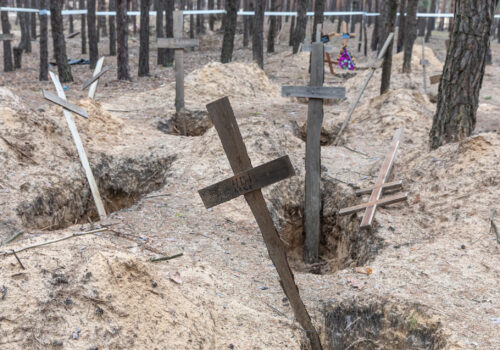Recent efforts to establish a “coalition of the willing” to help enforce a potential peace deal in Ukraine are very welcome, even if it still remains unclear exactly what participating countries are actually “willing” to do. The good news is that talks on the issue appear to be advancing steadily from the purely theoretical level toward more practical military matters. In particular, it is encouraging to see recognition among Ukraine’s European partners of the need for genuine deterrence rather than a toothless United Nations peacekeeping mission.
The bad news is that the entire discussion over the possible deployment of Western troops to Ukraine continues to be overshadowed by concerns over Russia’s inevitably negative reaction. While British and French officials insist that they do not require the green light from Moscow, a significant number of their European colleagues disagree. Furthermore, many of those who appear supportive of Western troops in Ukraine seem ready to grant Putin a veto on other critical issues relating to Ukraine’s long-term security, such as the country’s NATO aspirations.
Efforts to seek some kind of consensus with the Kremlin over the future security of Ukraine are futile and fundamentally misjudge the expansionist goals underpinning Russia’s invasion. After more than three years of full-scale war, it should be painfully obvious to any objective observer that Putin is not pursuing legitimate security concerns, and is instead obsessed with the idea of erasing Ukraine as a state and as a nation.
Stay updated
As the world watches the Russian invasion of Ukraine unfold, UkraineAlert delivers the best Atlantic Council expert insight and analysis on Ukraine twice a week directly to your inbox.
Since the onset of Russia’s full-scale invasion in February 2022, Putin has demonstrated time and again that he has no intention of seeking a sustainable solution that could lead to peaceful coexistence between the Russian Federation and an independent Ukraine. On the contrary, he remains committed to wiping the Ukrainian state off the map. This is most immediately apparent in the systematic eradication of Ukrainian national identity throughout areas of the country currently under Kremlin control.
Putin’s current negotiating position is similarly revealing. The Kremlin dictator continues to insist on a demilitarized and neutral Ukraine, with Kyiv prevented from receiving any further Western aid and forced to cede large tracts of additional Ukrainian territory that the Russian army has so far been unable to occupy. If implemented, these so-called peace terms would amount to a complete capitulation that would leave Ukraine partitioned, isolated, and virtually defenseless against further Russian aggression. It would then only be a matter of time before Putin completed his conquest.
Eurasia Center events

Given what we now know about Russia’s war aims in Ukraine, it makes little sense to let Putin set the agenda for peace negotiations or dominate the debate over future security guarantees. His imperial ambitions clearly leave no room for any meaningful compromise that would guarantee Ukraine’s national survival or serve as the basis for a lasting peace in the wider region.
Instead, Ukrainians should be focused on convincing the country’s European partners that they do not need Russia’s consent before acting to defend Ukrainian sovereignty and safeguard their own security. One of the most compelling arguments in this respect has been provided by Putin himself. After all, the Russian ruler did not ask Western leaders for their opinion when he invited North Korean soldiers to join his war against Ukraine, or when he deployed Russian nuclear weapons to neighboring Belarus.
It is delusional to think that offering Putin concessions will persuade him to abandon his expansionist agenda. In reality, as long as Ukraine’s Western partners continue to seek Putin’s permission before taking steps to protect themselves, they will never be secure. If the leaders of the democratic world are serious about achieving a lasting peace in Europe, they must move decisively to provide Ukraine with credible security guarantees without worrying whether Putin will agree or not.
Alyona Getmanchuk is director of the New Europe Center and a nonresident senior fellow at the Atlantic Council Eurasia’s Center.
Further reading
The views expressed in UkraineAlert are solely those of the authors and do not necessarily reflect the views of the Atlantic Council, its staff, or its supporters.

The Eurasia Center’s mission is to enhance transatlantic cooperation in promoting stability, democratic values, and prosperity in Eurasia, from Eastern Europe and Turkey in the West to the Caucasus, Russia, and Central Asia in the East.
Follow us on social media
and support our work
Image: Ukrainian service members fire a shell from a M777 Howitzer at a front line, as Russia's attack on Ukraine continues, in Kharkiv Region, Ukraine July 21, 2022. (REUTERS/Gleb Garanich)




